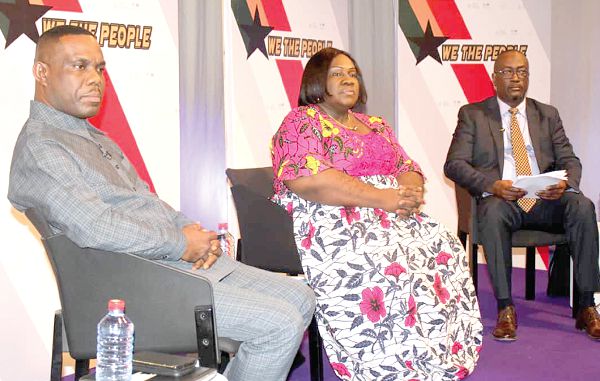
Civil society organisations and inclusive local governance, role of media
The concept of Civil Society Organisations (CSOs) is broad and diverse, making it sometimes difficult to grasp.
For the purpose of this write-up, CSOs are organisations made of individuals who have come together to advocate the well-being of the citizenry or the common good of all.
In Ghana, CSOs have over the years contributed to partnering government agencies to promote development.
CSOs continue to engage the government and citizens by influencing public policy through advocacy campaigns, policy formulation and implementation, awareness creation, education and capacity building.
Historically, CSOs in Ghana have evolved in terms of structure, scope, engagements, membership and service delivery. Examples of actors in civil society include Non-Governmental Organisations (NGOs), professional associations, faith-based organisations, political parties, academia and youth groups.
Some active CSOs in Ghana include STAR- Ghana, Institute for Democratic Governance (IDEG) and the Centre for Democratic Governance (CDD)-Ghana.
CSOs role in governance, Participation, Transparency and Accountability.
One of the prominent priorities of CSOs is keeping an eye on the governance issues which the World Bank highlights as participation of all involved, accountability, consensus, transparency, responsiveness, inclusiveness, equitability and rule of law.
Ghana witnessed the critical role CSOs played during the referendum for the creation of the six new regions as some of the CSO mounted various campaigns to educate citizens on the benefits of creating additional regions.
Equity and Inclusiveness
CSOs have a role to play in ensuring that all parties concerned are given the fair opportunity in the national discourse.
All groups including the vulnerable in society such as Persons With Disabilities (PWDs), women, the aged among others.
Weaknesses in the civil society space
Funding has been a challenge for most CSOs.
The effect is that they are not able to effectively carry out their mandate.
Second, ideally, actors in the civil society and state officials must be seen as inseparable partners in finding solutions to governance issues.
However, there are many instances where government and CSOs appear to be on a collision course.
The modus operandi of the CSOs is mostly a top-down approach instead of a bottom-up approach. What is more, lack of understanding of CSOs by local authorities and community members has also been identified as a key challenge for CSOs.
Narrowing down to the media
Without doubt, the media in Ghana have performed creditably the role of educating, informing and entertaining the public.
Despite their general contribution, the lack of collaboration between the media and other CSOs has been identified as the key reason why Ghana’s local government system has been seen as less inclusive, accountable and transparent.
The gap between the media and CSOs is as a result of inadequate policy literacy and capacity among journalists, civil society actors and citizens, particularly at the local government level.
As part of efforts to address the seeming lack of collaboration between the media and CSOs, the Ghana Journalists Association (GJA) in partnership with STAR-Ghana is implementing an 18-month project aimed at strengthening media and civil society organisations (CSOs) collaboration for inclusive and accountable local governance in Ghana.
Under the project, the Ghana Journalists Association (GJA) will carry out series of strategic media interventions by providing structured media platforms for CSOs activities.
Additionally, trainings will be organised to build capacities of journalists and civil society actors specifically on critical local governance issues.
As part of the capacity building, journalists and CSOs will gain insights into the constitutional review processes of district assembly election, proposed election of Metropolitan, Municipal and District Chief Executives (MMDCEs), as well as the creation of new regions.
The way forward
The weaknesses in the civil society space will certainly affect the country’s efforts to achieve good governance at the local level.
There is ,therefore, the need to address these weaknesses.
First, CSOs must come out with sustainable ways of generating their own funds without over depending on international sources.
Second, CSOs must reconsider their relationship with state agencies and vice versa by clearly defining roles for national development.
Third, CSOs must be accountable to the people.
Civil society organisations play a critical role in shaping the developmental needs of the citizenry.
Addressing their weaknesses require that CSOs strategise to get their own funding, improve their relation with government and the local communities they serve.
The role of the media as a category of CSOs has been highlighted and serious measures must be taken to work in tandem and strengthen their collaboration with other CSOs, with the hope of pushing further Ghana's developmental agenda through maximum citizens participation.
Writer’s E-mail: danaazephaniah@gmail.com
